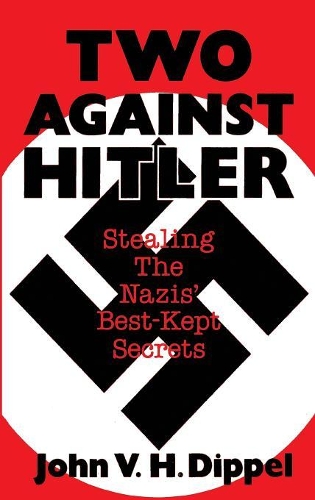
Two Against Hitler: Stealing the Nazis' Best-Kept Secrets
(Hardback)
Publishing Details
Two Against Hitler: Stealing the Nazis' Best-Kept Secrets
By (Author) John Vh Dippel
Bloomsbury Publishing PLC
Praeger Publishers Inc
10th February 1992
United States
Classifications
Tertiary Education
Non Fiction
General and world history
Second World War
Modern warfare
940.548673
Physical Properties
Hardback
272
Description
During the World War II, the United States benefited greatly from the espionage collaboration between a well-connected ex-professor of economics, Erwin Respondek, and his contact at the US embassy in Berlin, Sam Woods. The intelligence gathered by Respondek and passed on to the US government included the first detailed and accurate warning about the Germans' plans to invade the Soviet Union in 1941. It also included valuable information about German atomic research, military operations, and "secret weapons". This espionage work forms an intriguing chapter in the history of US intelligence operations during the war and is distinctive for the personalities of the principal figures, their web of high-level connections and the impact of their achievements. Among the important revelations of this book, which set it apart from previous, passing references to this espionage collaboration, are that Erwin Respondek was one of the United States' most valuable wartime informants in Hitler's Germany, responsible for the famed "Barbarossa" warning sent to the State Department; that Franz Halder, the German army's chief of staff, was a major source of Respondek's information on the Germans' invasion plan for the Soviet Union; that Du Pont and the German chemical firm IG Farben maintained a secret wartime exchange of scientific findings, up until 1945; that during 1943 and 1944 the German Armaments Ministry supported research leading toward the construction of a new kind of cyclotron; that Sam Woods received from Respondek a tip-off on Japanese war plans in the Pacific; and that Pope Pius X11 was peripherally involved in the resistance activities of Respondek and his Berlin-based circle. This book should appeal to students and scholars interested in Nazi Germany and World War II espionage and to a wider, nonspecialist audience as well.
Reviews
Every imaginable archive and personal recollection is explored, and the book closes on and excellent bibliography and list of interviews that continues for 20 pages. The author writes engagingly. . . it is good, solid history.-The Historian Autumn, 1993
"Every imaginable archive and personal recollection is explored, and the book closes on and excellent bibliography and list of interviews that continues for 20 pages. The author writes engagingly. . . it is good, solid history."-The Historian Autumn, 1993
Author Bio
JOHN V.H. DIPPEL is a writer at Jan Krukowski Associates in New York. He received his Ph.D. in English and Comparative Literature from Columbia University. His articles have appeared in The Atlantic Monthly, New Republic, and The New Leader.
